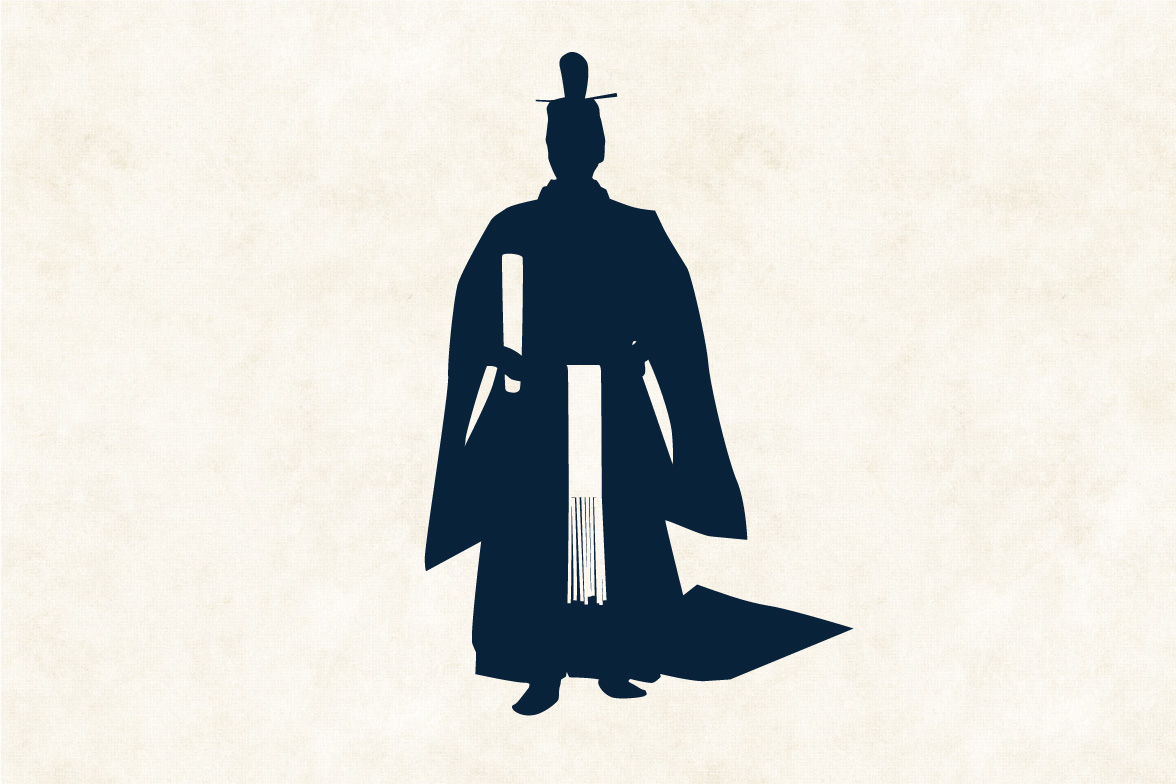Emperor Tenji (626–671)

Emperor Tenji was the 38th emperor in Japan. He is known as the most eminent emperor of all.
He was born in Asuka, Nara in 626 and was Prince Naka no Oe before enthronement. In 645, he conspired with Nakatomi no Kamatari to assassinate Soga no Iruka who was gaining nearly total control. Their aim was to establish a centralized government and to implement a political reform called the Taika Reforms by carrying out a system of complete state ownership of lands and citizens, reorganization of provinces, districts and villages, the law for rice field allotment and a new way of taxation. With such reforms, Japan was becoming a country under the political system based on Ritsuryo legal codes. In 663, at the battle of Baekgang, Prince Naka no Oe supported Paekche [one of the three kingdoms in Korea]; however, he was defeated by the allied forces of the Tang Dynasty and Silla. To prepare for the Tang Dynasty’s invasion of Japan, he transferred the capital to Omi Otsu in 667. In the following year at the age of 43, he was enthroned and became Emperor Tenji. While Otsu was the capital, he established the first Japanese family register Kogo Nenjaku and introduced a type of water clock Rokoku. It can be said that Japanese time was born in Otsu. However, in 671, Emperor Tenji passed away less than four years after his enthronement. In the following year, the biggest domestic war in ancient Japan, the Jinshin War, occurred over the imperial succession between his brother, Prince Oama, and his son, Prince Otomo, and the capital of Otsu was abolished.
- General admission
- Remains of Otsukyo, Omi Jingu Shrine, Ruins of Sufukuji Temple, etc.
